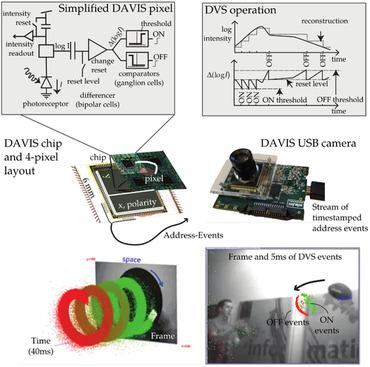Ev-Edge: Efficient Execution of Event-based Vision Algorithms on Commodity Edge Platforms
Event cameras have emerged as a promising sensing modality for autonomous navigation systems, owing to their high temporal resolution, high dynamic range and negligible motion blur. To process the asynchronous temporal event streams from such sensors, recent research has shown that a mix of Artificial Neural Networks (ANNs), Spiking Neural Networks (SNNs) as well as hybrid SNN-ANN algorithms are necessary to achieve high accuracies across a range of perception tasks. However, we observe that executing such workloads on commodity edge platforms which feature heterogeneous processing elements such as CPUs, GPUs and neural accelerators results in inferior performance. This is due to the mismatch between the irregular nature of event streams and diverse characteristics of algorithms on the one hand and the underlying hardware platform on the other. We propose Ev-Edge, a framework that contains three key optimizations to boost the performance of event-based vision systems on edge platforms: (1) An Event2Sparse Frame converter directly transforms raw event streams into sparse frames, enabling the use of sparse libraries with minimal encoding overheads (2) A Dynamic Sparse Frame Aggregator merges sparse frames at runtime by trading off the temporal granularity of events and computational demand thereby improving hardware utilization (3) A Network Mapper maps concurrently executing tasks to different processing elements while also selecting layer precision by considering both compute and communication overheads. On several state-of-art networks for a range of autonomous navigation tasks, Ev-Edge achieves 1.28x-2.05x improvements in latency and 1.23x-2.15x in energy over an all-GPU implementation on the NVIDIA Jetson Xavier AGX platform for single-task execution scenarios. Ev-Edge also achieves 1.43x-1.81x latency improvements over round-robin scheduling methods in multi-task execution scenarios.
PDF Abstract



 DENSE
DENSE